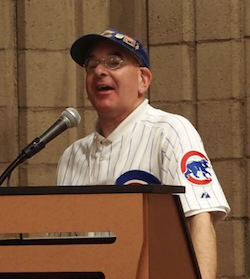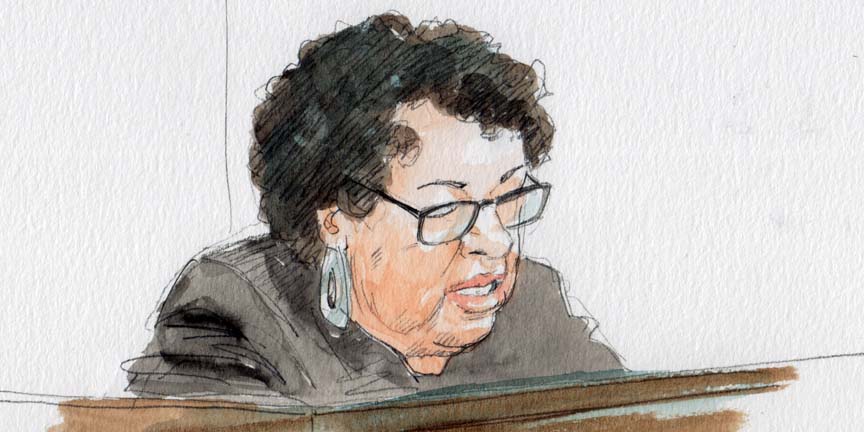Opinion analysis: Unanimous court rejects equitable tolling for interlocutory appeals of class-certification denials

on Feb 26, 2019 at 2:23 pm

Federal Rule of Civil Procedure 23(f) — allowing parties to seek permission for interlocutory review of decisions granting or denying class certification within 14 days of the decision — is a mandatory nonjurisdictional claim-processing rule, not subject to tolling or exception for reasons of equity or fairness, a unanimous Supreme Court held Tuesday in Nutraceutical Corp. v. Lambert in a 12-page opinion by Justice Sonia Sotomayor.
Troy Lambert filed a putative class action, alleging violations of California’s false advertising, consumer fraud and unfair competition laws, arising from Nutraceutical’s sale and marketing of what it claimed were aphrodisiac supplements. The district court certified the class in 2014, then decertified it on February 20, 2015. At a March 2, 2015, status conference, Lambert asked the court to recertify the class; the court notified Lambert that he could file a motion for reconsideration of the decertification order within 10 days of the conference. Lambert moved to reconsider on March 12, 2015, the 10th day since the court gave it permission to move but more than 14 days after the decertification decision. The district court denied the motion for reconsideration on June 24, 2015. Lambert filed his Rule 23(f) petition with the U.S. Court of Appeals for the 9th Circuit on July 8, 2015, and the 9th Circuit found the appeal timely, because Lambert had informed the trial court of his intention to seek reconsideration within 14 days and because he “’otherwise acted diligently.’”
The Supreme Court made short work of the basic issue. It agreed with the lower court that Rule 23(f) is nonjurisdictional, because it is found in a rule of procedure rather than a congressionally enacted statute. Therefore, it must be a claim-processing rule. Although nonjurisdictional rules can be waived or forfeited, they are not “malleable in every respect.” Some claim-processing rules are mandatory, meaning that they are unalterable if properly raised. Rules in this “mandatory camp” are not subject to the equitable approach the 9th Circuit applied. The text of a rule determines whether it leaves room for court-imposed flexibility.
Rule 23(f) makes clear that the deadline is not subject to tolling. Appeal is possible only if the party petitions within 14 days, language bolstered by Federal Rule of Appellate Procedure 5(a)(2) stating that a petition for permission to appeal “must be filed within the time specified” by the applicable rule (in this case Civil Rule 23(f)). Stating a time limit in an unqualified manner does not necessarily remove all flexibility. But the appellate rules governing extensions of time expressly reject extensions of time to file petitions for permission to appeal such as allowed by Rule 23(f). Those rules show that “the deadline for the precise type of filing at issue here may not be extended. The Rules thus express a clear intent to compel rigorous enforcement of Rule 23(f)’s deadline, even where good cause for equitable tolling might otherwise exist.” The Supreme Court supported this conclusion with precedent interpreting Federal Rule of Criminal Procedure 45(b), a similar extension-of-time provision, not to allow exceptions.
The court went on to reject each of Lambert’s specific arguments. Lambert had argued that the relevant rules are “less emphatic” than they appear. In Lambert’s view, the rules should be understood to prohibit courts from granting extensions in advance, but to “leave courts free to excuse late filings on equitable grounds after the fact.” But the Supreme Court found that argument foreclosed by precedent holding that a court’s acceptance of a late filing under Criminal Rule 45(b) impermissibly “enlarged” a filing period, and it stated that Lambert had offered no basis for reading Rule 26(f) differently. Lambert had also argued that the Advisory Committee Notes to Rule 23(f) give the court of appeals discretion to grant or deny a petition for review “on the basis of any consideration that the court of appeals finds persuasive.” But the Supreme Court insisted that the Advisory Committee’s language speaks to the decision whether to review a particular class-certification decision in an interlocutory posture, not to the timeliness of the petition. Finally, Lambert had argued that the practice of most courts of appeals to accept as timely petitions filed within 14 days of a motion for reconsideration of a certification decision if that motion is filed within 14 days of the initial class decision suggests that Rule 23(f) is subject to tolling. The court responded that this argument “relies on a mistaken premise”: The motion for reconsideration does not toll the period for seeking permission to appeal; it affects the “antecedent issue” of when the 14-day period for seeking appeal begins to run. The Supreme Court noted that it need not consider the effect of a motion for reconsideration filed within 14 days or the effect of a court’s misleading a party about the filing deadline.


